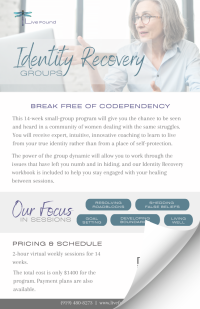Trauma Informed Recovery from Abuse: An Introduction
As a relationship coach specializing in high-conflict marriages and those recovering from narcissistic and emotional abuse, I get a first-hand look at the impact of trauma in the fabric of those relationships. Sometimes, that impact is difficult to spot. The noise of the presenting issues mask it. The issues are often actually the rebellion against whatever the destructive factors of their relationship have been. But, untangling the trauma a bit can make it easier and more attainable to come out of self-protective hiding. Only then, are you able to build the kind of connection your heart was designed for. Without a conceptual framework for the aspects of trauma, we miss key elements necessary for healing, emotional freedom and self-efficacy.
No one gets through life unscathed by harm and trauma. We live in a world that is marred and broken. Nothing is truly as it has been written upon our hearts to be. At every step, we have learned. Something that distinguishes us from the rest of creation is the ability to project our learning to determine our next steps, to create, plan, and build our future. As we mature, what we’ve learned through extrinsic memory (those things we had to pay attention to and concentrate on to learn) tends to become aligned with our interests, curiosities, and passions. We pay attention to what is relevant, those things we believe will be useful and helpful and successful for us.
The Impact of Intrinsic Memory on Trauma
And then there’s the whole intrinsic memory side of us, which are those things we’ve learned without paying attention. It’s the habits we reflect from our caregivers, many of which we learn before we are mentally able to process them. They are the subconscious messages we’ve picked up along the way of our identity, worth, and value, and what we’ve learned to fear, deny, and reject. It’s the ways we emulate how we carry ourselves, talk, and respond to life around us. It’s what we associate with “normal.” The intrinsic memories are what provide the foundation for everything we believe, say, and do.
It’s the intrinsic learning that is highly susceptible to the trauma of abuse. We aren’t reasoning things out, consciously determining what to store in memory and what to dump. We often passively float along, complacently developing a mindset determined by our experiences. And when the experience is trauma, what we learn is the world is not safe, people are not safe, everything is potentially threatening, and no one is going to rescue you. It is all up to you. You are the only one who knows enough and cares enough to protect you. And every time someone else doesn’t do enough to understand you or stand up for you, it feels like betrayal. Deep, heart-wrenching betrayal. And a very real sense of being alone and on your own.
The Brain and Trauma: A Complex Relationship
There is vast research about our brains: how we learn and unlearn, how it is structured, how our experiences impact and change that structure. And how that itself impacts perception and responsive behavior. The research on the plasticity of our brains is fascinating! Even when we don’t remember the experiences, our brains change in ways that affect our personalities, propensities, responses and tolerance levels. The changes also affect our impulsivity and self-regulation, our motivation, reasoning, and emotions. For example, brain scans can show physical signs of exposure to long-term trauma by an enlarged amygdala and a shrunken hippocampus. The hippocampus is crucial in learning and developing memories, while the amygdala is where negative emotions like shame, guilt, fear, and envy come to life. Size is correlated with “use,” like how working out builds bigger muscles. The implication is obvious – less curiosity, learning, maturing, and more depression, anxiety, and complacency.
The Negative Impact of Trauma on Emotional Well-being
Trauma negatively impacts thinking, empathy, ability to see freedom, resilience, and sense of self-efficacy. Trauma disables transparency and turns vulnerability into a liability rather than a strength. Through a lens of trauma, everything and everyone is seen as a potential threat. There is a strong sense of learned helplessness, that no matter what they might do, it won’t make a difference in the harm, so why bother. Coping with the constant perceived threats often looks like taking on behaviors that are self-destructive but feel like control, such as eating disorders, cutting, substance use and abuse, and other addictions. These are often NORMAL responses to abnormal events!
PTSD and CPTSD: The Long-term Effects of Trauma
Prolonged trauma, which often results in behaviors labeled PTSD or CPTSD, grooms a person to become complacent, dependent upon the circumstances or the abuser to change rather than seeing any agency of their own to change. They become emotionally fragile, helpless, numb. In early counseling stages, this can look like an animal used to being caged and confined. Who, even when the door is clearly opened, doesn’t attempt to walk out into the freedom anymore. Again, these are normal reactions to abnormal circumstances.
The Path to Healing from Trauma
Past trauma predisposes us to become self-protective in ways that disable the connection we were designed by God to experience. We hide ourselves behind a mask, or a shield, or fear, making our emotional world really small and fragmented. No heart can find healing from this place. And no relationship can find real connection.
Next Steps for Trauma Informed Recovery from Abuse
If you would like to gently begin to unpack what your own trauma has done to your heart, we’d love to help!


